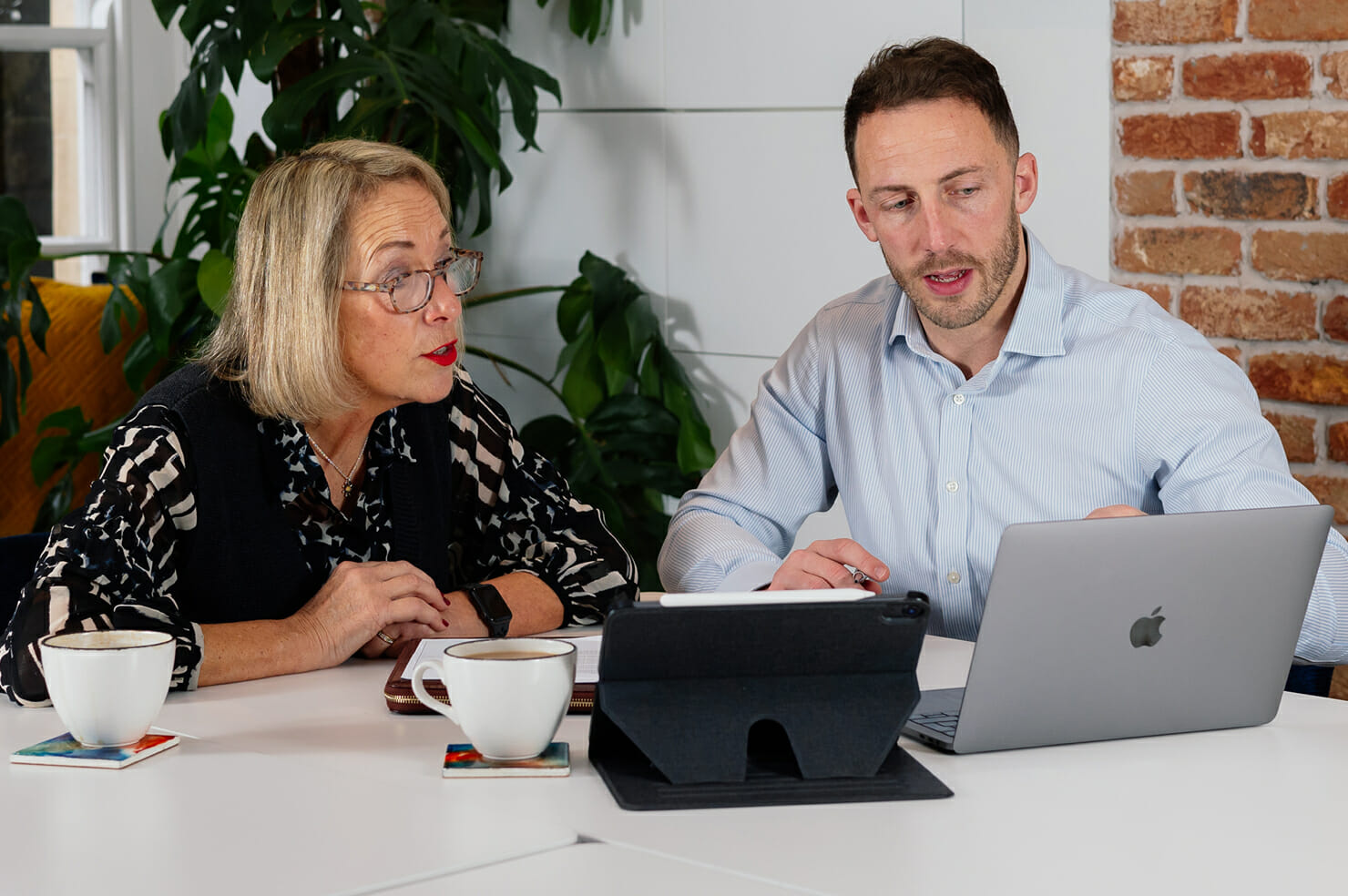Modified on: July 2024
10 ways to reduce your tax bill : Effective Strategies for Savvy Taxpayers
Navigating the UK tax system can be complicated, but knowing the right strategies can make a significant difference in how much you owe. If you’re looking for effective ways to reduce your tax bill, this post will provide you with actionable insights. By leveraging tax allowances, reliefs, and other strategies, you can keep more of your hard-earned money.
We’ll explore various tax-efficient methods, from making the most of your savings allowances to maximising your pension contributions. These steps not only reduce your current tax liabilities but also set you up for greater financial stability in the future. Stay tuned to discover practical steps that can lead to substantial tax savings.
Key Takeaways
- Maximise tax allowances and reliefs.
- Use tax-efficient investment strategies.
- Plan smartly for high-income tax scenarios.
Understanding Your Tax Bill
Grasping the elements of your tax bill is crucial for effective tax management. Key aspects include understanding tax rates, allowances, and the terminology used by HMRC.
The Importance of Knowing Tax Rates and Allowances
Your tax bill is influenced by the rate of income tax you pay and the allowances you are entitled to. The key allowance for most people is the personal allowance, which is the amount of income you can earn before you start paying income tax. For the current tax year, this is £12,570.
Different portions of your salary are taxed at different rates. For instance, income over your personal allowance up to £50,270 is taxed at the basic rate of 20%. Earnings between £50,271 and £125,140 are taxed at 40%, known as the higher rate. If your income exceeds £125,140, you pay the additional rate of 45%.
Being aware of these rates helps you plan and take advantage of tax-free allowances like savings and dividends allowances. This knowledge allows you to use your allowances fully, potentially reducing your overall tax burden.
Decoding HMRC: Terms and Definitions
Understanding HMRC terminology can simplify navigating your tax responsibilities. HMRC, or Her Majesty’s Revenue and Customs, is the UK government department responsible for collecting taxes.
Income Tax is the tax you pay on your income, which can come from salaries, investments, or business profits. The tax year runs from 6 April to 5 April the following year.
The personal allowance is the threshold at which you start to pay income tax. Terms like tax relief, which involves reducing your taxable income through certain expenses or donations, are also important. Knowing these definitions helps you understand your tax obligations better, potentially avoiding penalties and making more informed financial decisions.
By familiarising yourself with these terms and rates, you can manage your tax bill more effectively and take steps to reduce it where possible.
Leveraging Tax Allowances and Reliefs
Understanding how to leverage tax allowances and reliefs can significantly reduce your tax bill. This includes personal allowances, capital gains tax allowances, and tax-free allowances on investments.
Making the Most of Personal Allowances
Every individual in the UK has a personal allowance of £12,570, which means you won’t pay income tax on earnings up to that amount. Ensuring you fully utilise this allowance is essential. If your income is below this threshold, consider strategies like shifting income or utilising shared allowances with a spouse. Married couples and civil partners, for instance, can transfer a portion of their personal allowance to each other, increasing their tax-free income.
Additionally, if you haven’t yet, explore marriage allowance and savings income allowance. These can further minimise your taxable income and optimise your personal allowances.
Capital Gains Tax Allowances
Using your annual Capital Gains Tax (CGT) allowance can help reduce the tax paid on profits from selling assets. Each year, you can make gains of up to £3,000 without incurring any tax. This is particularly beneficial if you plan to sell shares, property, or other valuable assets.
It’s important to track your gains throughout the year and time your sales accordingly. By spreading sales over multiple tax years, you can maximise your CGT allowances and minimise tax liabilities. If married, both spouses are entitled to their own CGT allowances, enabling efficient tax planning through the strategic transfer of assets.
Utilising Tax-Free Allowances on Investments
Maximising tax-free allowances associated with investments, such as ISAs (Individual Savings Accounts), can lead to substantial savings. For the current tax year, individuals can invest up to £20,000 in ISAs without paying tax on interest, dividends, or capital gains earned within the account.
Exploring different types of ISAs, like Cash ISAs, Stocks and Shares ISAs, or Lifetime ISAs, allows you to choose what aligns best with your financial goals. Pension contributions also offer tax relief, enabling you to save for retirement efficiently. By contributing up to 100% of your annual earnings into your pension (capped at £60,000 per year), you can benefit from significant tax breaks.
Optimising these allowances helps minimise your taxable income and enhances your investment returns.
Investment Strategies for Tax Reduction
Utilising investment strategies can help significantly reduce your tax bill. Various schemes in the UK offer tax reliefs when contributing to certain types of investments. Key methods include ISAs, pensions, and investments in specific government-supported schemes.
ISAs and Your Tax Bill
Individual Savings Accounts (ISAs) offer a straightforward way to invest while reducing your tax liability. With a Stocks and Shares ISA, any income or capital gains earned are tax-free. The annual ISA allowance is £20,000. Maximising this allowance every year can help you build a substantial tax-free investment portfolio.
ISAs also offer flexibility, allowing you to withdraw money without losing tax benefits. They are an ideal option if you want to invest in shares, bonds, or funds without worrying about a hefty tax bill. Remember that the gains within an ISA do not count toward your income tax bill.
Pensions as a Tax-Saving Tool
Pensions are one of the most effective ways to reduce your tax bill. Contributions to your pension reduce your taxable income. For instance, if you contribute £1,000 to your pension, your taxable income decreases by £1,000. Higher and additional rate taxpayers benefit the most, as they get relief at their highest rate of tax.
Employers also make contributions to your pension which are not subject to National Insurance. Over the long term, pensions not only help you save for retirement but also provide immediate tax benefits.
The Enterprise Investment Scheme and Venture Capital Trusts
Investing in the Enterprise Investment Scheme (EIS) and Venture Capital Trusts (VCTs) can lead to substantial tax reliefs. With EIS investments, you can claim up to 30% income tax relief on the amount invested, providing you keep the investment for at least three years. Additionally, any gains are free from Capital Gains Tax if the shares are held for a minimum of three years.
VCTs offer 30% income tax relief on investments up to £200,000. Dividends from VCTs are tax-free, as are any capital gains. These schemes encourage investments in smaller, high-risk companies by offering significant tax benefits. While they carry higher risks, for those willing to take the risk, they can offer considerable tax reductions.
ISAs, pensions, and specific investment schemes tailored to investors are highly effective tools to legally reduce your tax bill. Utilising these strategies to their full extent can provide both immediate relief and long-term financial benefits.
Maximising Deductions and Company Benefits
To effectively reduce your tax bill, it’s essential to maximise allowable deductions and leverage company benefits. This approach not only helps in decreasing taxable income but also ensures that you utilise all potential tax-saving opportunities available to your business.
Claiming Allowable Expenses
Claiming allowable expenses is a crucial strategy to lower your tax bill. Expenses incurred during business operations, such as office supplies, travel, and equipment, can be deducted from your profits.
When documenting these expenses, ensure that receipts and invoices are accurately recorded and categorised. For example, if you use a portion of your home as an office, you can claim a percentage of household expenses like electricity and internet costs. You can also deduct costs related to staff training, insurance, and marketing activities.
It’s important to understand what qualifies as a tax-deductible expense and keep up with changes in tax laws that might affect your claims.
Understanding Employer Share Schemes
Employer share schemes can be a powerful tool in reducing your tax liability while offering significant benefits to your employees. These schemes allow you to offer shares or share options to your employees as part of their compensation package.
One popular option is the Enterprise Management Incentive (EMI), which provides tax advantages if certain conditions are met. Employees receiving shares under an approved scheme often pay less tax on any gains compared to cash bonuses.
By offering shares, you can reward and retain key staff while potentially saving on employer National Insurance contributions. Schemes such as these often have complex rules, so consulting with a tax professional is advised to ensure compliance and maximise the benefits.
For more insights on effective ways to reduce your tax bill, including strategic use of pension contributions, explore Northern Accountants’ guide and Taxcare’s recommendations.
Tax Planning for High-Income Individuals
Tax planning is crucial for high-income individuals in the UK. Efficient use of pension contributions and strategic tax planning can significantly minimise your tax liabilities. Below, we cover key points such as the tapered annual allowance and strategies for higher-rate taxpayers.
Tapered Annual Allowance and Pension Contributions
As a higher-income earner, you may be affected by the tapered pension annual allowance. This taper reduces your annual allowance based on your income.
When your adjusted income exceeds £240,000, your annual allowance starts to reduce. For every £2 above this threshold, your allowance decreases by £1. The minimum allowance you can have is £4,000.
You should maximise your pension contributions within your current allowance to reduce taxable income. Pay attention to employer contributions as these count towards your annual allowance too. Utilising salary sacrifice schemes can also be beneficial, as this reduces your taxable income and boosts your pension pot.
Tax Strategies for Higher-Rate Taxpayers
Higher-rate taxpayers can benefit from various tax-efficient strategies. One approach is to ensure you make full use of tax-efficient investment accounts.
Investing in ISAs (Individual Savings Accounts) offers tax-free returns on investments up to the annual limit. You can also consider Venture Capital Trusts (VCTs) and Enterprise Investment Schemes (EIS), which offer income tax relief and other benefits.
Examining salary sacrifice schemes can reduce your taxable income, as part of your salary is exchanged for non-cash benefits, such as pension contributions or childcare vouchers. Using these methods, you can reduce your exposure to higher tax rates effectively.
Smart Planning for Business and the Self-Employed
Effective tax planning can significantly reduce your tax obligations whether you run a business or are self-employed. Here’s how you can navigate corporation tax and VAT and leverage the benefits of being self-employed.
Navigating Corporation Tax and VAT
Corporation tax is a major element for businesses. Companies with profits over £250,000 pay the main rate of 25%, while those with profits under £50,000 pay a reduced rate of 19%. If your profits fall between these ranges, you pay a tapered rate. Plan your expenses carefully to manage your taxable income and avoid falling into higher tax brackets.
VAT is also important. If your business has a turnover above £85,000, you must register for VAT. Consider VAT schemes like the Flat Rate Scheme, which can simplify VAT accounting and potentially save money. Accurate record-keeping and timely VAT submissions prevent penalties and interest.
Tax Benefits of Self-Employment
Self-employed individuals have unique opportunities to reduce their tax bills. Pension contributions are a key strategy, allowing you to claim tax relief on contributions up to £40,000 per year. This not only lowers your tax bill but also boosts your retirement savings.
Additionally, making charity donations can lower your taxable income. For example, donating before 31 January each tax year can reduce your tax bill for the previous year. Make sure you keep all records of donations for accurate reporting.
By leveraging these strategies, you can significantly reduce your tax liability and improve your financial health.
Tax Considerations for Gift-Giving and Inheritance
When planning your finances, particularly around gift-giving and inheritance, consider how specific tax rules can affect what you pass on to your loved ones. Understanding gift aid, charitable donations, and inheritance tax planning is essential to make informed decisions.
Gift Aid and Charitable Donations
Gift aid is a UK tax incentive that allows charities to reclaim tax on donations made by UK taxpayers. By signing a gift aid declaration, you enable the charity to claim an extra 25p for every £1 you donate, at no extra cost to you.
Charitable donations are not only satisfying but also tax-efficient. When you donate to a registered charity and declare gift aid, you can reduce your tax bill. If you are a higher rate taxpayer, the benefits are even more significant, as you can claim the difference between the basic rate and your highest rate of tax on the donation.
Gift aid can also work when you donate goods to charity shops. The charity sells your goods, and the proceeds can be boosted by gift aid if you’ve signed a gift aid declaration.
Inheritance Tax and How to Plan for It
Inheritance tax (IHT) is levied on estates worth more than the nil-rate band, currently set at £325,000. When you pass away, up to 40% tax may apply to the value of your estate above this threshold. However, with proper inheritance tax planning, you can legally reduce this tax burden.
Giving gifts is a common method to reduce IHT. If you survive for at least seven years after giving a gift, it becomes exempt from IHT. Known as the seven-year rule, this strategy can save your heirs a significant amount. You can also make use of the annual gift allowance, which lets you give away up to £3,000 each year free of IHT.
Another consideration is the marriage allowance, which allows you to transfer a portion of your personal allowance to your spouse or civil partner, helping to reduce the taxable estate further.
For those with larger estates, trusts and other financial instruments might be beneficial to explore. Trusts can provide a way to control assets and potentially reduce IHT liabilities. Proper advice from a tax professional is crucial to navigate these strategies effectively.
Conclusion
Reducing your tax bill requires careful planning and using tax-efficient strategies.
Make sure you use all available tax allowances, such as your personal allowance, savings allowance, and dividends allowance.
Consider making use of tax-efficient investment accounts like ISAs, which allow you to invest up to £20,000 a year without paying any tax on the returns.
If you’re self-employed or a business owner, paying into a pension pot is a tax-efficient way to save for retirement and reduce your taxable income.
Reviewing your income tax situation regularly and making adjustments, like taking advantage of marriage tax allowances, can help you pay less tax.
Using these strategies can help you optimise your tax position while staying within UK tax laws. By being proactive, you can potentially save a significant amount on your tax bill.
Frequently Asked Questions
Reducing a tax bill involves various strategies depending on employment status and income level. Below are specific approaches for different scenarios in the UK.
What are effective strategies for a self-employed individual to minimise tax liabilities?
You can claim allowable business expenses such as office costs, travel and accommodation, and even some entertaining expenses. Additionally, making contributions to a personal pension can also reduce your taxable income.
In what ways can employees ensure they are not overpaying on taxes?
Ensure you’re using your tax-free allowances like the personal savings allowance and dividends allowance. Utilizing ISA contributions and claiming any available marriage tax allowances are also effective ways.
What methods are available for UK earners to lawfully reduce their salary tax?
Make use of salary sacrifice schemes, such as pension contributions or childcare vouchers. These schemes reduce your taxable income. Additionally, restructuring your earnings to gain savings from tax-efficient investments can be beneficial.
What approaches can high-income earners in the UK adopt to decrease their taxable income?
High-income earners can take advantage of tax reliefs by investing in Enterprise Investment Schemes (EIS) and Venture Capital Trusts (VCT). Using your annual Capital Gains Tax allowance can also help manage tax obligations better.
How can a limited company in the UK lessen its tax burden?
A limited company can reduce its tax by optimizing director’s salaries and using dividend payments instead of higher salaries. Additionally, claiming Research and Development (R&D) tax credits and making the most of business expenses can substantially reduce tax liabilities.
What are the legal avenues for saving tax beyond the personal allowance?
Legal tax-saving methods beyond personal allowances include utilizing the marriage allowance, taking advantage of pension contributions, and investing in tax-efficient schemes. Capital Gains Tax allowances also provide a way to reduce your tax payments.
How can we help?
Understanding the nuances of tax planning is just the beginning. At Frazer James, we believe in a holistic approach to your financial health.
Our expertise extends beyond tax minimisation strategies; we delve into creating a comprehensive wealth management plan that integrates your tax considerations within the context of a broader financial plan.
We exclusively work with clients who see the value in long-term financial partnerships, where tax planning is part of the bigger picture. Want to know more? Schedule an initial consultation to see how our advisory services can enhance your financial situation.
All the best,
James Mackay, Independent Financial Adviser in Bristol
P.s – make sure to check out bonus sacrifice – how to save tax
https://frazerjames.co.uk/bonus-sacrifice-how-to-save-tax/
.
.
Financial Advisor Bristol and Pension Advisor Clifton
Frazer James Financial Advisers is an Independent Financial Advisor Bristol, Clifton.
About us: Frazer James Financial Advisers is a financial adviser in Bristol. As an independent financial adviser, we’re able to provide independent and unbiased financial advice. We provide independent financial advice, pension advice, investment advice, inheritance tax planning and insurance advice.
If you would like to speak to a Financial Advisor, we offer an Initial Financial Consultation without cost or commitment. Meetings are held either at our offices, by video or by telephone. Our telephone number is 0117 990 2602.
Frazer James Financial Advisers is located at Square Works, 17 – 18 Berkeley Square, Bristol, BS8 1HB.
This article provides information about investing, but not personal advice. If you’re not sure which investments are right for you, please request advice.
Remember that investments can go up and down in value, you may get back less than you put in.
About The Author
Related news


Get in touch
Schedule a free consultation with one of our financial advisers, or give us call.
0117 990 2602
 Client login
Client login  Retirement assessment
Retirement assessment  Book a consultation
Book a consultation  0117 990 2602
0117 990 2602 











